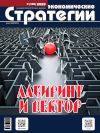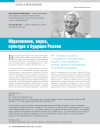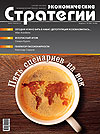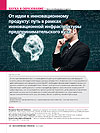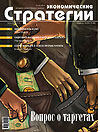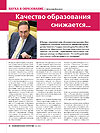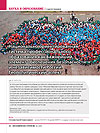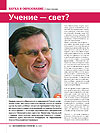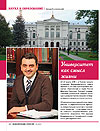The XXI Century Science: New Priorities
DOI: 10.33917/es-3.189.2023.58-61
The issue of priorities in science is discussed in comparison with L.N. Tolstoy’s formulation of this problem. Problems posed by L.N. Tolstoy, are addressed by the sciences of natural-humanitarian synthesis, which study the “nature — man — society” system. The main function of new sciences is to explore the issue of a man, conditions for selfpreservation and development of mankind as a whole. The change of priorities in the science of the 21st century is inevitable: from natural sciences to the sciences of natural-humanitarian synthesis.
References:
1. Golubev V.S. Priroda — chelovek — obshchestvo: razvitie i garmoniya [Nature — Man — Society: Development and Harmony]. Moscow, Lenand, 2016.
2. Golubev V.S. Garmoniya spaset mir [Harmony will Save the World]. Moscow, Lenand, 2017.
3. Golubev V.S. V poiskakh garmonii [In Search of Harmony]. Moscow, Lenand, 2022.
4. Bushuev V.V., Golubev V.S. Osnovy ergodinamiki [Fundamentals of Ergodynamics]. Moscow, Energiya, 2003; 2-e izd., Moscow, Lenand, 2012.
5. Bushuev V.V., Golubev V.S., Orlov I.B. Vvedenie v sistemnuyu teoriyu kapitala [Introduction to the System Theory of Capital]. Moscow, Lenand, 2013.
6. Bushuev V.V., Golubev V.S., Tarko A.M. Strukturnaya energiya kak potentsial razvitiya. Mir i Rossiya [Structural Energy as a Development Potential. World and Russia]. Moscow, Lenand, 2014.
7. Golubev V.S. Vvedenie v sinteticheskuyu evolyutsionnuyu ekologiyu [Introduction to Synthetic Evolutionary Ecology]. Moscow, Papirus Pro, 2001.
8. Golubev V.S., Kurakov A.L., Timiryasova A.V. Chelovekovedenie [Human Studies]. Ucheb.-metodich. posobie. M.: IAEP; Kazan’: Poznanie, 2014.
9. Bushuev V.V., Golubev V.S. Estestvenno-nauchnye osnovy sotsial’nogo gumanizma [Natural-scientific Foundations of Social Humanism]. Moscow, Lenand, 2018.
10. Golubev V.S. Ocherki sotsial’nogo gumanizma. 3. O glavnom prioritete nauki: L.N. Tolstoi i sovremennost’ [Essays on Social Humanism. 3. On the Main Priority of Science: L.N. Tolstoy and Modernity]. Akademiya Trinitarizma, no 77-6567; publ. 25828, 2019, 26 oktyabrya, available at: http://www.trinitas.
ru/rus/doc/0016/001g/00164168.htm.
11. Golubev V.S. Osnovy ekosotsiogumanizma [Fundamentals of Ecosociohumanism]. Moscow, INFRA-M, 2022.






